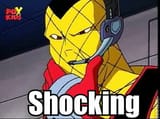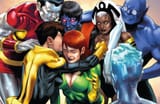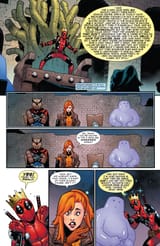Anonymous
6/24/2025, 8:19:12 PM No.149139008
The X-Men franchise is often celebrated as a parable of inclusion, a story in which those born different must endure the fear and rejection of the world. It is praised for advancing themes of civil rights, tolerance, and what our age likes to call "diversity." But this reading is spiritually deceptive. It accepts the stated moral of the story without examining the actual moral structure that drives it. Beneath its noble rhetoric, the X-Men mythos is not about justice or misunderstood beauty. It is about autonomy. It is about pride. It is about worship of the self.
The mutant allegory is not a metaphor for the imago Dei, nor is it a defense of human dignity. It is a liturgy of identity: self-willed, self-defined, and self-exalted. It is the fantasy of godhood without submission, an assertion of identity that rejects the grace of God which alone grants true and lasting personhood in Christ. It is a glory that rejects the God who alone is worthy. And like Babel, it is many voices rising together in defiance, not harmony.
I. Identity as Rebellion: The Lie Beneath the Metaphor
Most mutants do not seek to be restored and the rare exceptions only do because their powers are deemed too dangerous. But even good mutants like the X-Men themselves demand recognition and rights not as a plea for reconciliation but as an imposition of forced inclusivity. They engage in peaceful protest and call for systemic reform, yet their claims rest on the presupposition that the existing authorities (mostly non-mutants) are inherently oppressive, violent, or authoritarian in their treatment of “the other.” This worldview echoes much of contemporary progressive discourse that dismisses opposition as reactionary, extremist, or tyrannical, thereby shutting down genuine conversation and framing resistance to authority as wholly legitimate.
The mutant allegory is not a metaphor for the imago Dei, nor is it a defense of human dignity. It is a liturgy of identity: self-willed, self-defined, and self-exalted. It is the fantasy of godhood without submission, an assertion of identity that rejects the grace of God which alone grants true and lasting personhood in Christ. It is a glory that rejects the God who alone is worthy. And like Babel, it is many voices rising together in defiance, not harmony.
I. Identity as Rebellion: The Lie Beneath the Metaphor
Most mutants do not seek to be restored and the rare exceptions only do because their powers are deemed too dangerous. But even good mutants like the X-Men themselves demand recognition and rights not as a plea for reconciliation but as an imposition of forced inclusivity. They engage in peaceful protest and call for systemic reform, yet their claims rest on the presupposition that the existing authorities (mostly non-mutants) are inherently oppressive, violent, or authoritarian in their treatment of “the other.” This worldview echoes much of contemporary progressive discourse that dismisses opposition as reactionary, extremist, or tyrannical, thereby shutting down genuine conversation and framing resistance to authority as wholly legitimate.
Replies:





